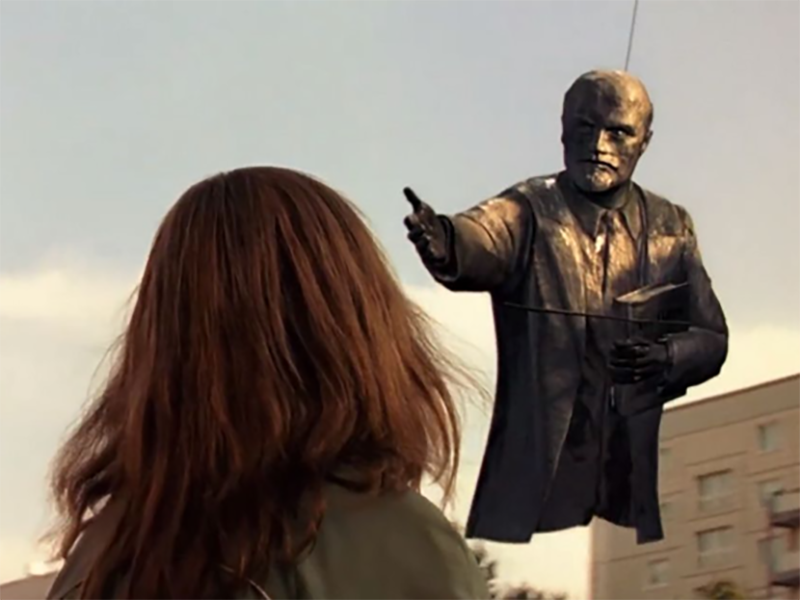
Credit: X-Filme Creative Pool. Distributed by X Verleih AG (through Warner Bros.)
Introduction
Of all the films I’ve watched throughout my life, Wolfgang Becker’s Goodbye Lenin! (2003), a tragicomic story of an East German family living through German reunification in the 1990s, has stayed in my memory the most. I’m not sure exactly why: it might be Yann Tiersen’s touching soundtrack that moves between the melancholic and the joyful, the sense of this ordinary family navigating the winds of historical change, or the conflicting feelings that come from the transition from socialism to capitalism as history dramatically shifts gears. One particularly evocative scene in the film depicts a broken statue of Lenin being flown by helicopter past the family’s mother Christiane, who stands looking on, absolutely stunned at what she is witnessing.
